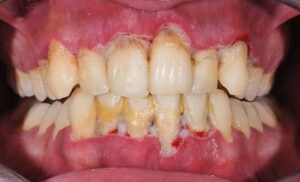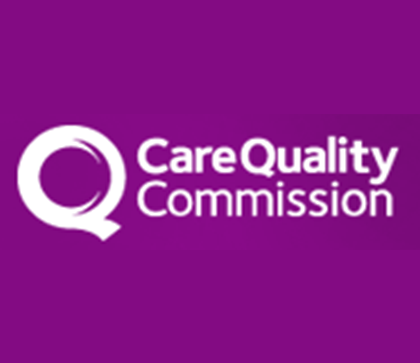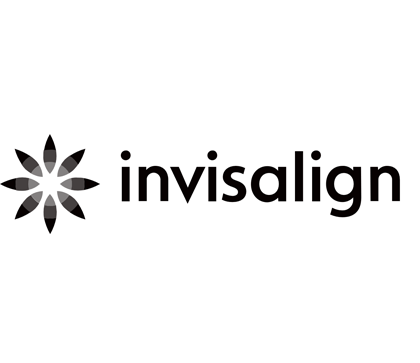
The Importance of Early Diagnosis and Treatment
August 19, 2023
The Importance of Early Diagnosis and Dental Treatment
In the world of dentistry, the saying “prevention is better than cure,” rings true. Through the lens of a dental professional, prevention means early diagnosis and timely treatment. The benefits of early diagnosis in dental care are massive: it can prevent complications, cut down on treatment costs, and most importantly, preserve the health and aesthetics of your smile. Nobody wants to deal with a filling they could have prevented, but sadly this is just one example of not acting on early diagnosis.
Why Early Diagnosis is Crucial
 Early diagnosis plays a pivotal role in determining the trajectory of dental issues. For instance, when a cavity is detected early on, a simple filling might suffice. However, if that cavity is left undiagnosed and untreated, it can progress to deeper layers of the tooth. This can lead to painful conditions such as tooth decay or even abscesses, which can further lead to the need for root canal therapy or tooth extraction.
Early diagnosis plays a pivotal role in determining the trajectory of dental issues. For instance, when a cavity is detected early on, a simple filling might suffice. However, if that cavity is left undiagnosed and untreated, it can progress to deeper layers of the tooth. This can lead to painful conditions such as tooth decay or even abscesses, which can further lead to the need for root canal therapy or tooth extraction.
Symptoms to Watch Out For
Here are some symptoms that, when overlooked, can develop into more severe conditions necessitating comprehensive treatment:
1. Sensitivity to Hot and Cold: Often a sign of cavities, if left unchecked, it can result in deep-rooted decay requiring a root canal or extraction.
2. Bleeding Gums: While it might seem benign, it’s often a sign of gum disease. Ignoring it can result in advanced periodontitis, leading to tooth loss, pain and infection. While gum disease can be treated the impact of gum disease is irreversible,
3. Chronic Bad Breath: An indicator of poor oral hygiene, it can escalate to gum disease and decay if not addressed.
4. Pain on Biting or Chewing: This might indicate a cracked tooth or decay. Without treatment, it could result in the need for extensive dental procedures like crowns or implants.
5. Loose Teeth: A sign of underlying gum disease or trauma, neglecting it can result in tooth loss or the need for more complicated restorative work.
In short –
1.Timely Intervention: Early diagnosis and treatment are key for timely intervention in dental issues.
2. Preventive Excellence: Smile Circle excels in preventive dental care, ensuring issues are addressed early.
3. Enhanced Outcomes: Early attention leads to better treatment outcomes and improved oral health.
4. Reduced Complications: Timely care minimizes the risk of complications and extensive treatments.
5. Cost-Effective Care: Early intervention can save costs by preventing advanced dental problems.
6. Quality of Life: Our focus on early care enhances your quality of life and keeps your smile radiant.
Treatment After Late Diagnosis
Should these symptoms be ignored, the resulting conditions will demand more invasive treatments:
1. Cavities: Typically treated with fillings, if they deepen, they can lead to decay necessitating root canals.
2. Gum Disease: Early stages might require deep cleaning or scaling and root planing, but advanced stages might need surgical interventions, tooth extractions or prolonged cycles or medication. 
3. Tooth Decay: Depending on the severity, treatments range from fillings to root canals or even extractions.
4. Tooth Loss: May require dentures, bridges, or implants to restore function and aesthetics. This is often a costly issue to deal with and is why it is so crucial to be diligent with your oral health.
The Power of Prevention
Preventive dental care, which hinges on early diagnosis, can spare patients from complex procedures, higher costs, and the discomfort of advanced dental issues. Regular dental check-ups, at least twice a year, can ensure that potential problems are spotted early on. These check-ups can be instrumental in maintaining not just oral health but overall well-being.
Want to discuss treatment with one of our recommended dentists in the Dorset and Hampshire area? Click here to find your next dentist.

 Head Office - UK - Unit 1 B 132 Weyhill Road, Andover, Hampshire England, SP10 2PR.
Head Office - UK - Unit 1 B 132 Weyhill Road, Andover, Hampshire England, SP10 2PR. 








